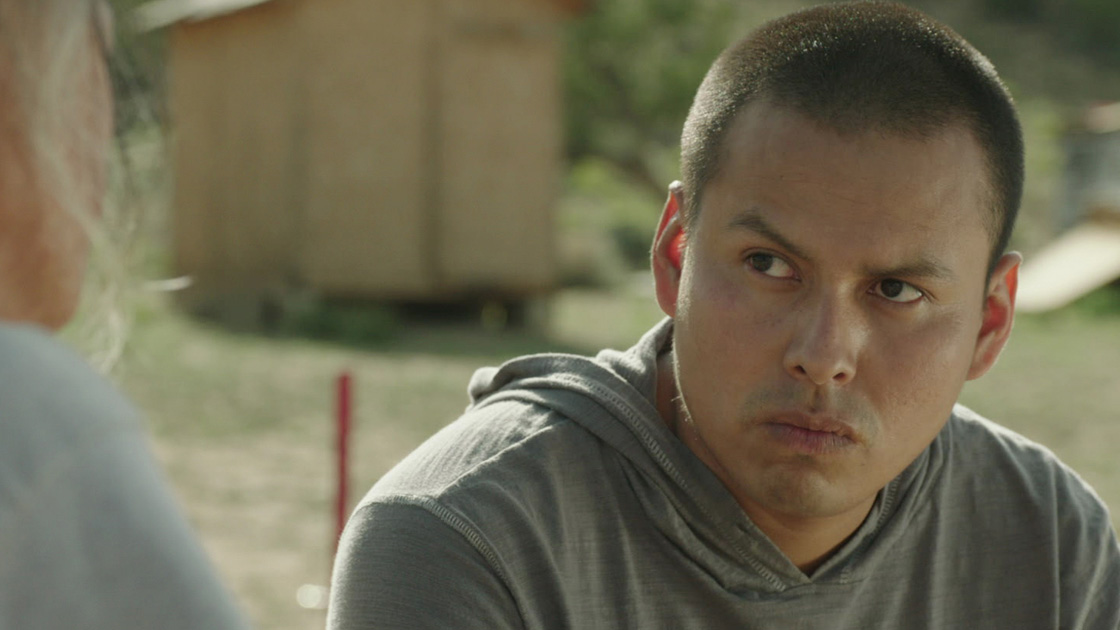 Back to selection
Back to selection
Interview with Drunktown’s Finest Director Sydney Freeland
 Drunktown's Finest
Drunktown's Finest Filmmaker: Why this movie? Why did you decide to do it?
Freeland: I grew up on the Navajo reservation and one thing that struck me growing up was that I never saw anybody that I recognized in the movies. I wanted to tell a story about the people and experiences I saw growing up and that’s what set me out to try and make this movie.
Filmmaker: How much of your crew was female? Was hiring women a consideration for you?
Freeland: I’m not sure, honestly. Our pre-production schedule was only 3 weeks and our shoot schedule was only 15 days. Things were moving at such an insane pace I didn’t even have time to think about that. I guess you could say we simply tried to hire whoever was best for the job.
Filmmaker: How did you go about raising funding for it? (I ask this because most female filmmakers says that being female makes it harder to raise funds, so thought your story could be inspiring — I know this topic can be touchy feely, so answer it in the way that you are most comfortable with.
Freeland: I was curious about this myself, actually. If my gender was an issue to investors, my producers did a good job of not telling me.
Filmmaker: Do you think a male director might have handled the making of this film differently? How did being a female filmmaker effect how this film got made do you think?
Freeland: This is tough to answer. Being both Native American and female, I’m definitely aware that I may not fit the appearance of what a “traditional” director may look like. But the reality is, once I step on set I have a job to do just like everyone else. I think once people see that I don’t make a big deal about it, neither do they.
Filmmaker: In what ways do you think being a female filmmaker/actress has helped or impeded your trajectory in the film industry?
Freeland: One thing I’ve noticed is that there tends to be a mentor-mentee relationship that develops with newcomers and established filmmakers. For example, an established director may take a younger director under his or her wing and kind of show them the ropes. Because most of the directors I worked with were male it was sometimes difficult to have that relationship. I don’t know that if it has impeded my trajectory but it’s certainly something I’ve noticed.
Filmmaker: Of the big blockbuster movies out there, which do you wish you had directed?
Freeland: Considering I grew up reading Marvel comics, I would love to direct a Spider-man or X-men movie.
Filmmaker: What’s next?
Freeland: I have a sci-fi, time travel film I’m working on. It’s a complete 180 from Drunktown’s Finest and I’m really looking forward to jumping into it.
Filmmaker: Considering this will be released at Sundance: A) What do you hope to gain from being at the festival? and B) Who would be your dream person to meet while there?
Freeland: A) The dream of course would be to sell the film. B) Robert Redford. Fortunately, I have already had the opportunity to meet him. However, I have not had the opportunity to thank him for creating the Sundance Labs and for providing a platform for people like me to tell their stories.
Filmmaker: What is a question I should have asked but didn’t that you think is relevant to this film?
Freeland: What are you most proud of about your film? The fact that, not only were we able to shoot a feature in 15 days, but we were able to shoot a film that was good enough to get into Sundance. I feel like this is a testament to how amazing our crew was. Everyone worked their butts off and I’m so thankful to have had the opportunity to collaborate with them.
